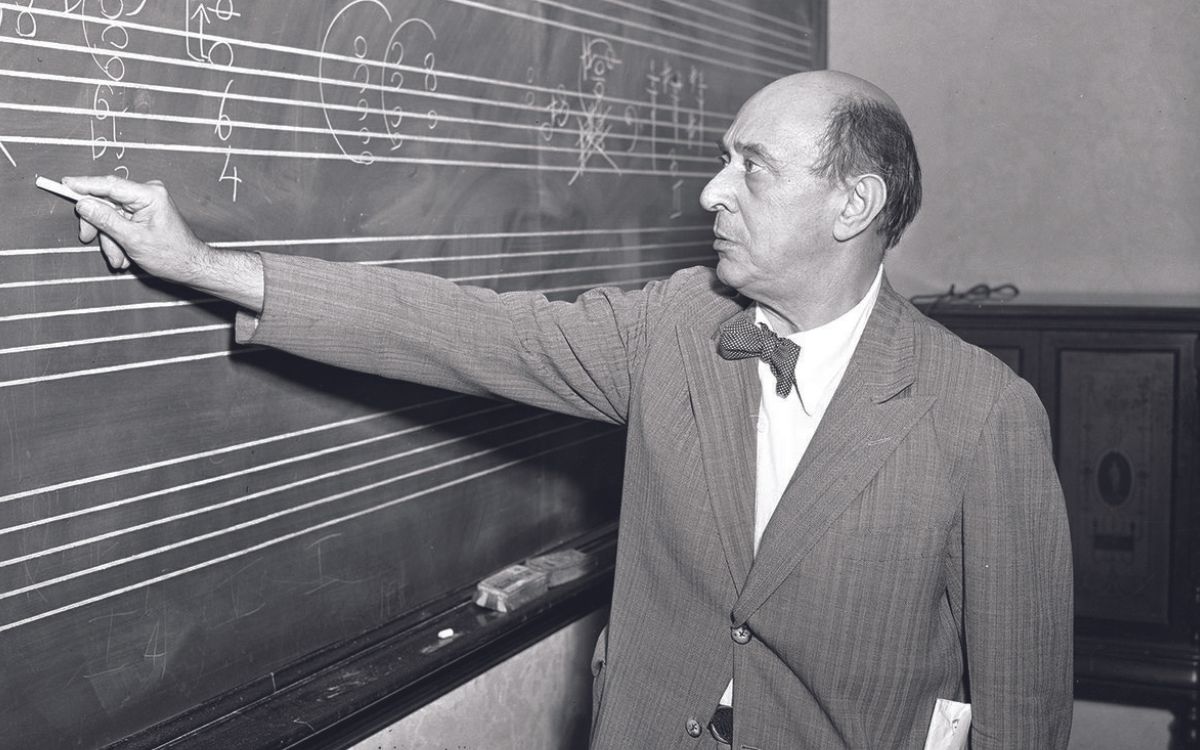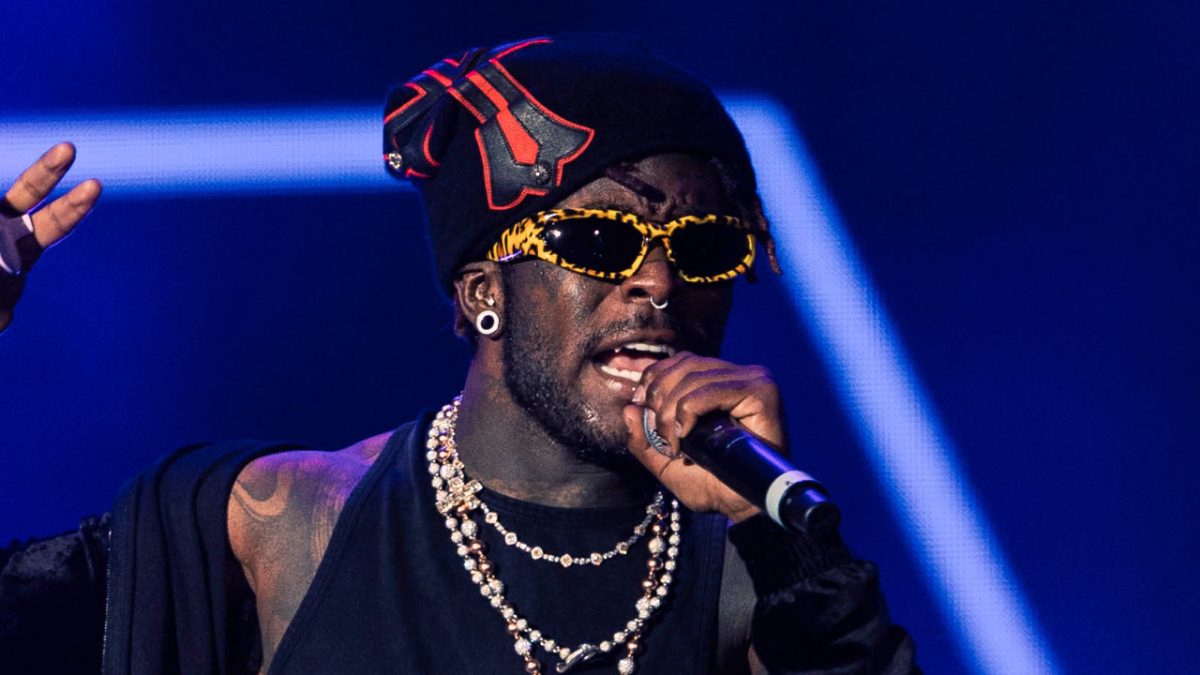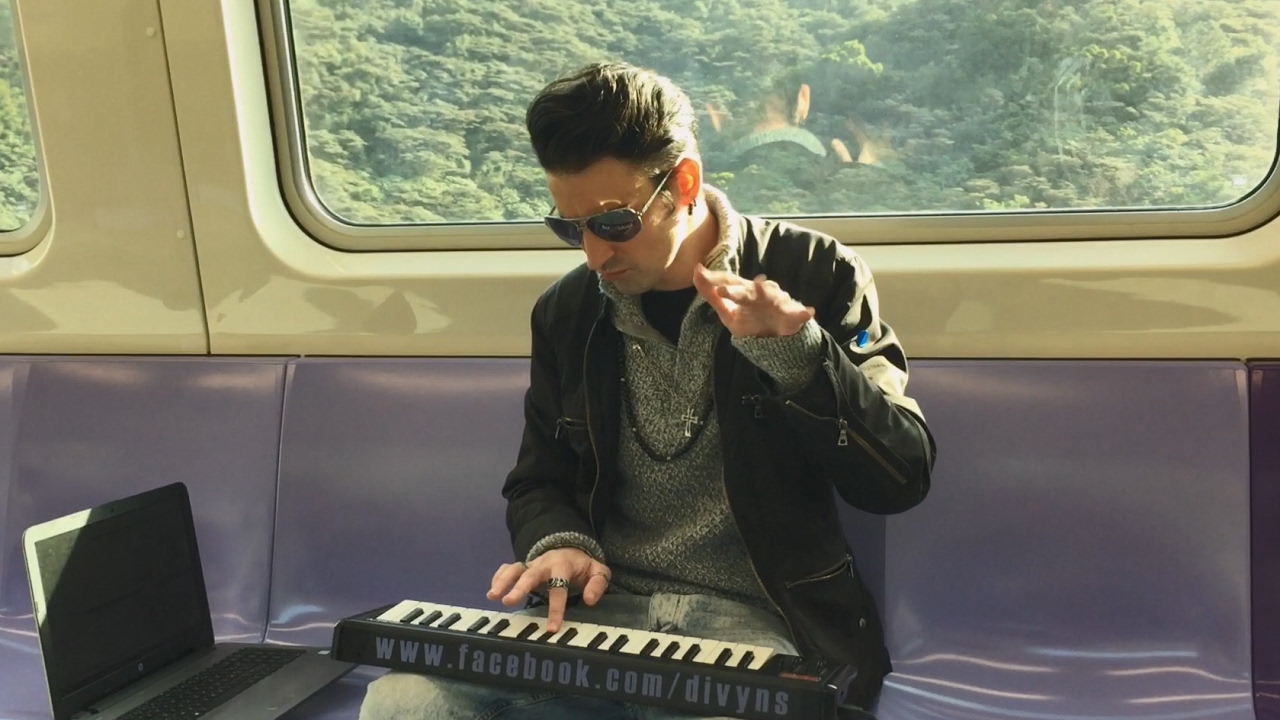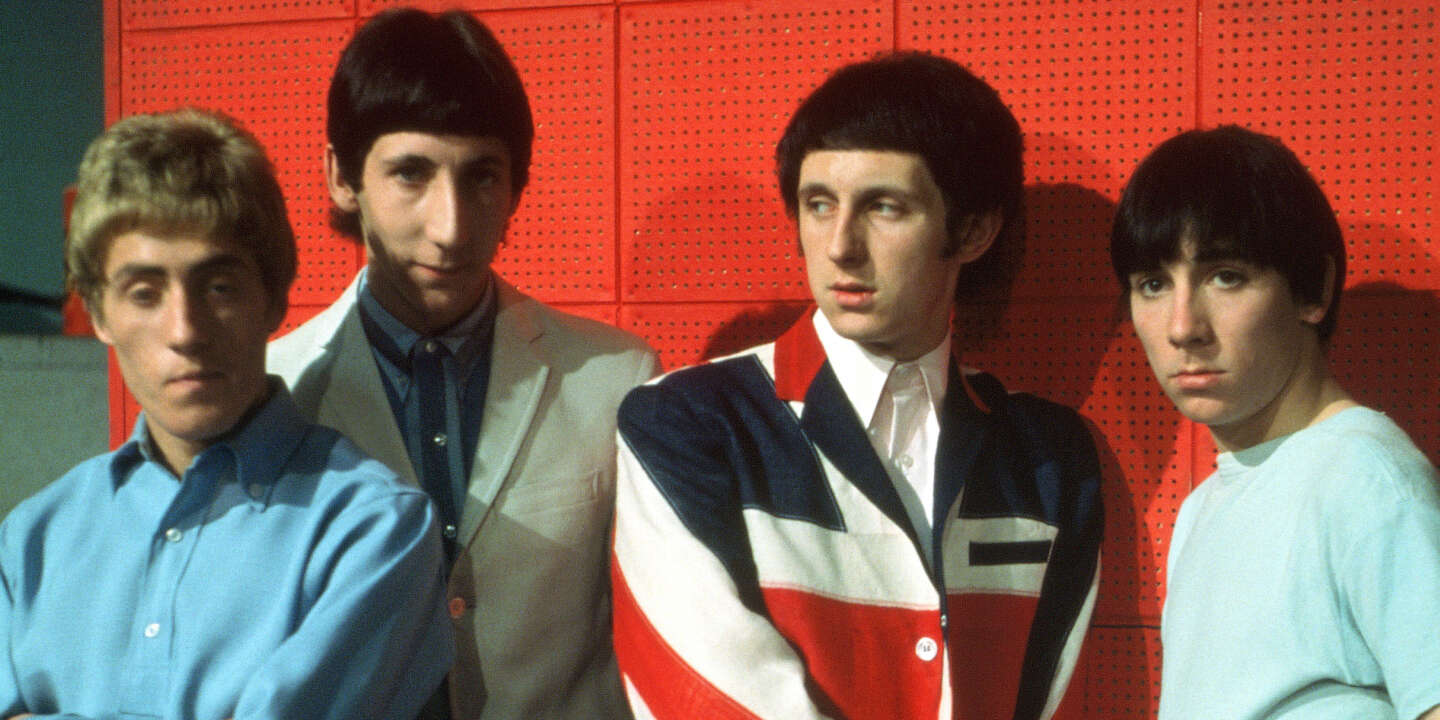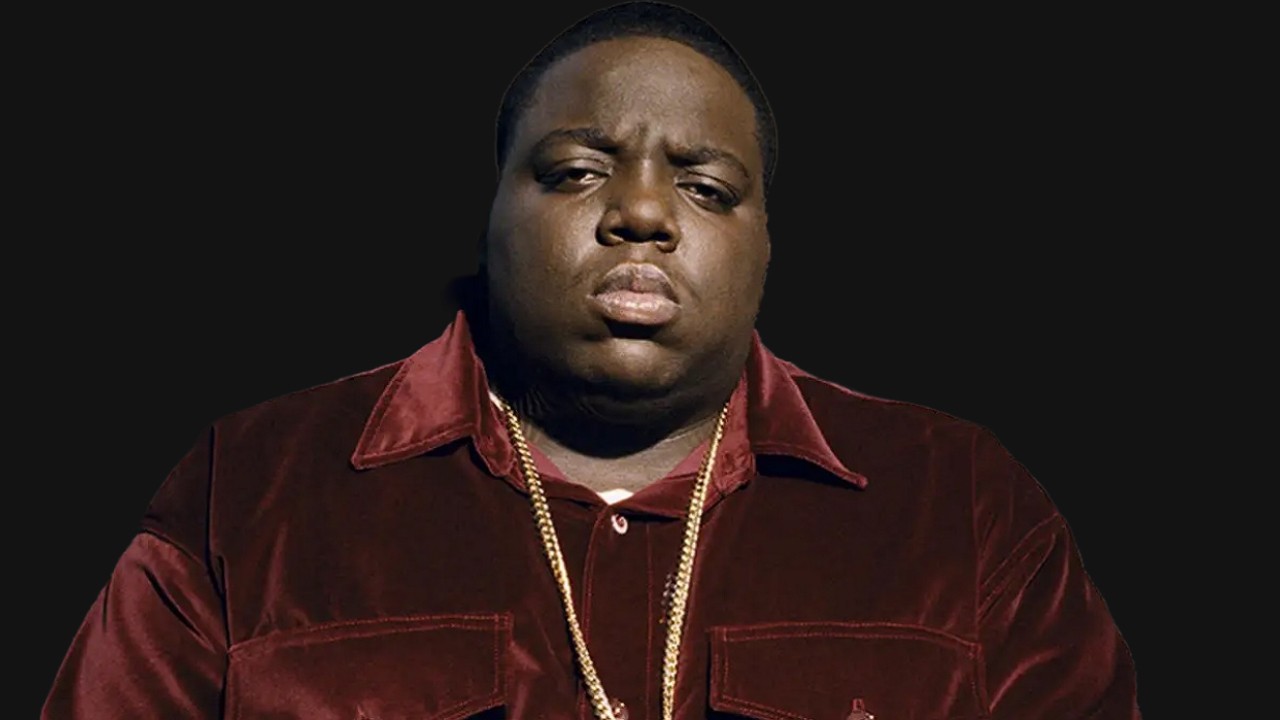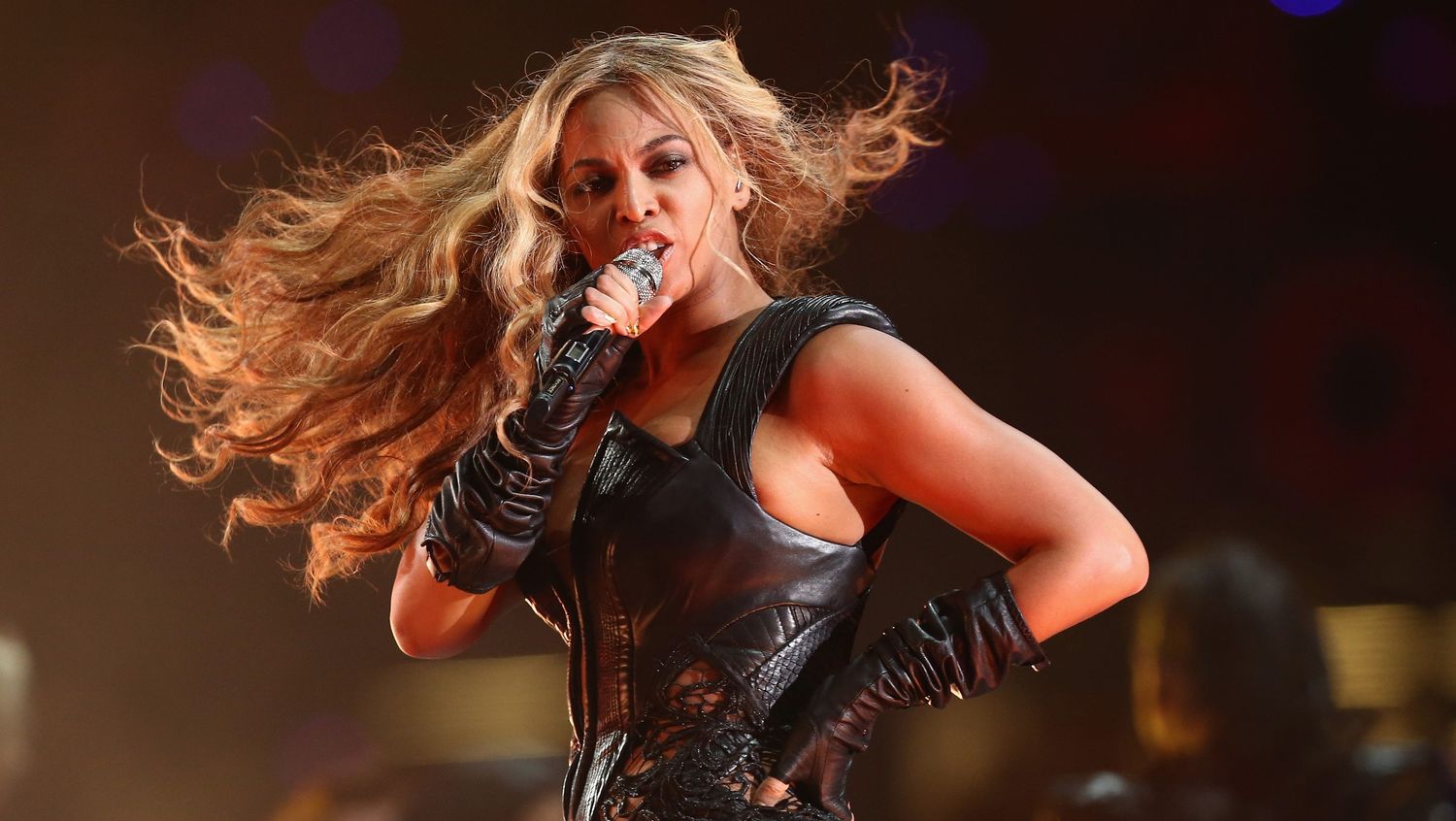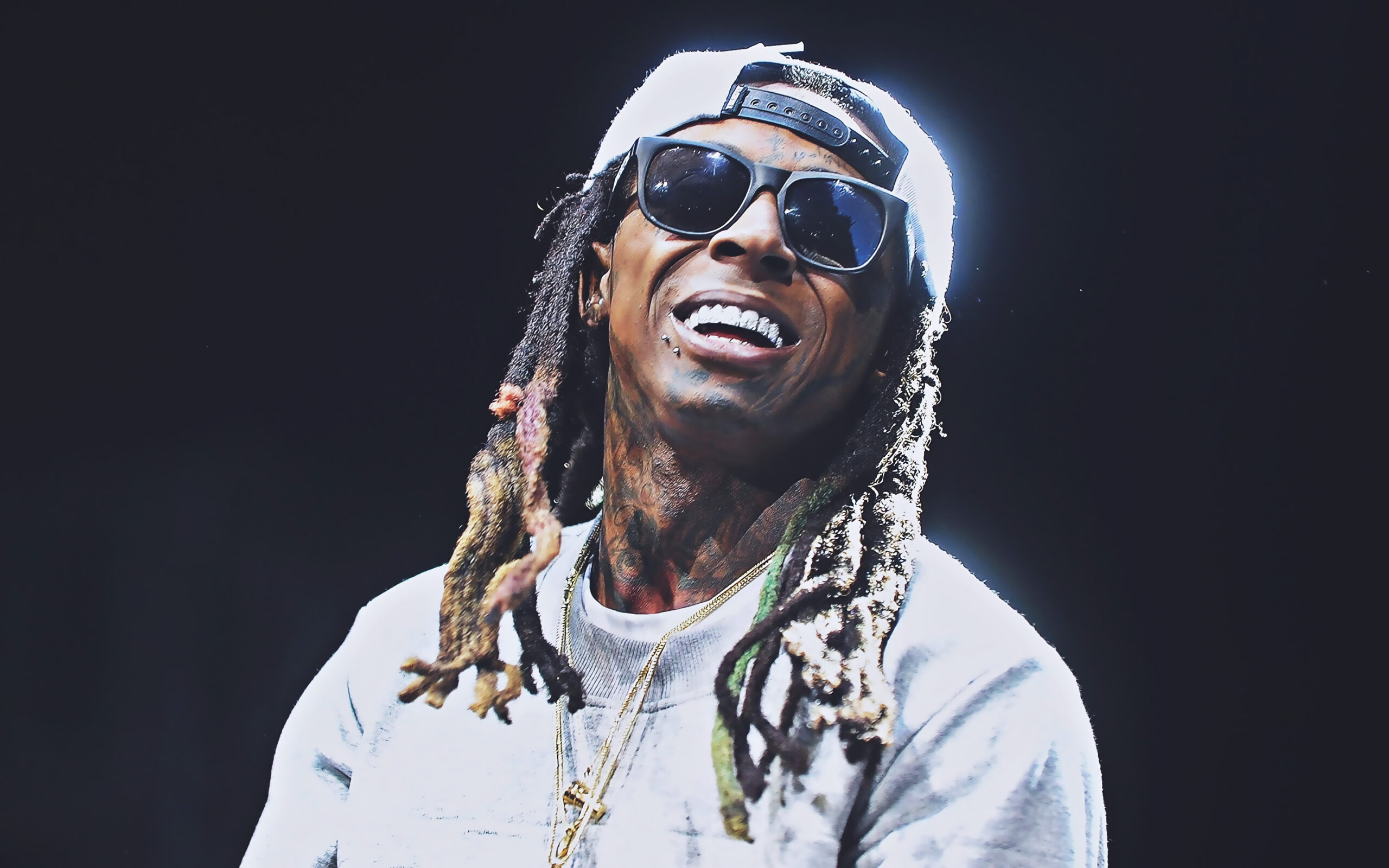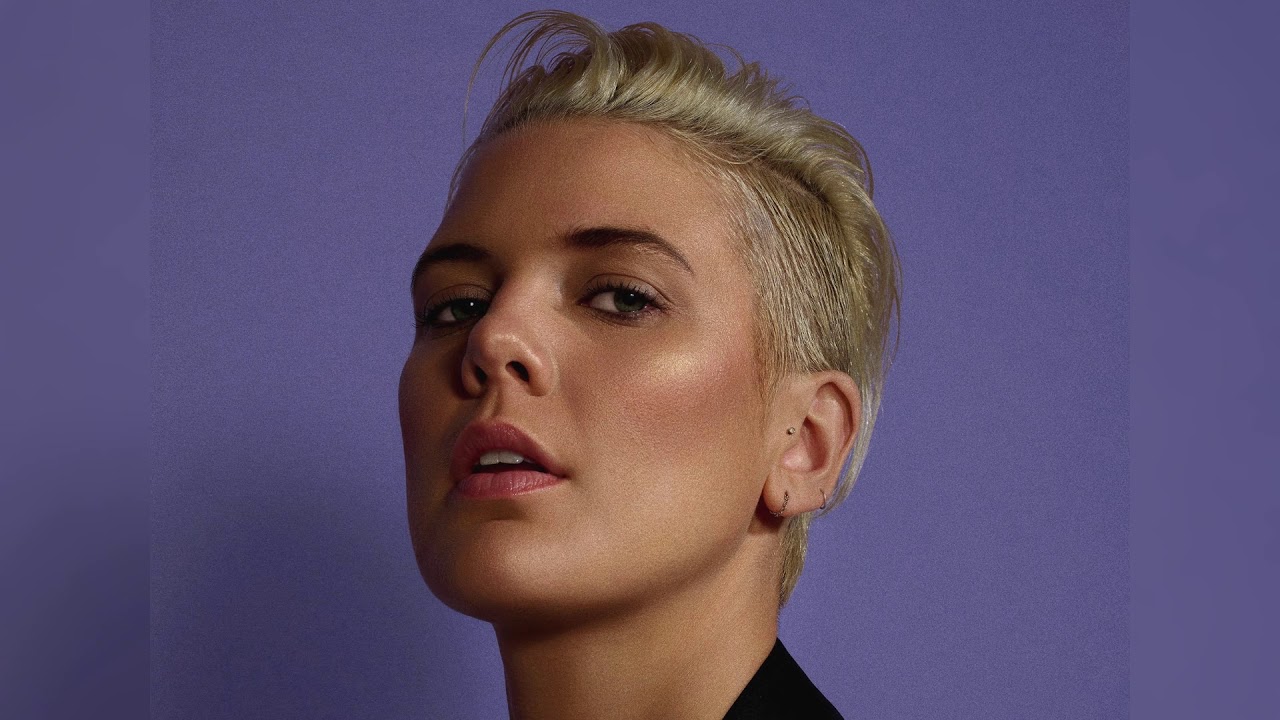Home>Production & Technology>Remix>Who Created The Remix
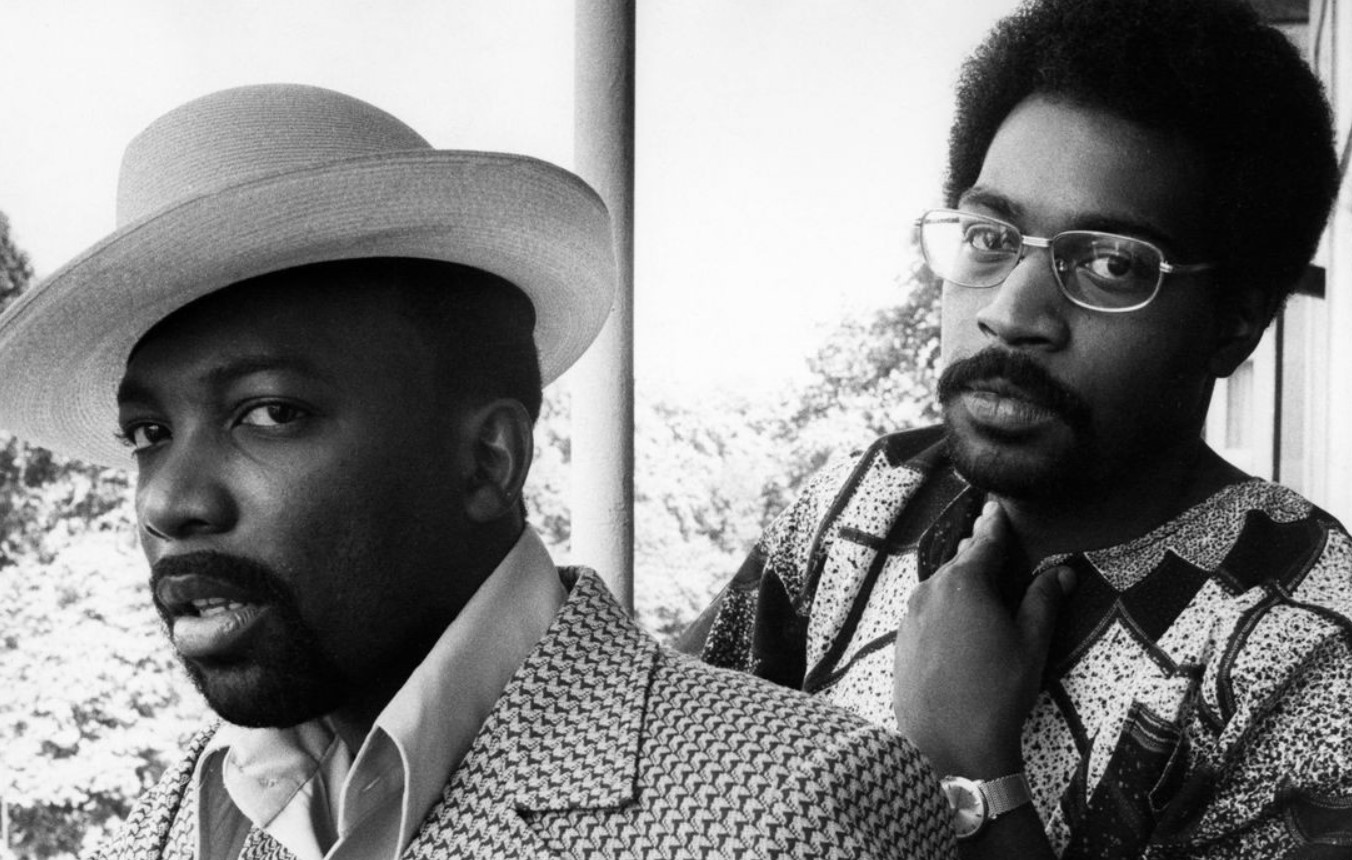

Remix
Who Created The Remix
Published: December 15, 2023
Discover the masterminds behind the creation of the famous remix. Uncover the secrets and inspiration that led to the birth of this captivating musical rendition.
(Many of the links in this article redirect to a specific reviewed product. Your purchase of these products through affiliate links helps to generate commission for AudioLover.com, at no extra cost. Learn more)
Table of Contents
- Introduction
- The Evolution of Remixes
- Pioneers in Remixing
- The Influence of Hip-Hop on Remix Culture
- The Rise of Digital Technology and the Remix Revolution
- The Legal and Copyright Issues Surrounding Remixes
- The Impact of Remix Culture on the Music Industry
- Famous Remixes That Transformed the Original Songs
- The Role of DJs in Remixing
- The Future of Remix Culture
- Conclusion
Introduction
Remixes have become an integral part of the music industry, allowing artists to breathe new life into existing songs and giving listeners fresh interpretations of their favorite tracks. But have you ever wondered who created the remix? The art of remixing has a rich history that dates back decades and has evolved alongside advancements in technology and changes in musical tastes.
In its simplest form, a remix is a reimagining of a song, where elements of the original track such as vocals, instrumentals, or melodies are rearranged, modified, or combined with other elements to create a new version. The remixing process often involves adding new beats, samples, or effects to give the song a different sound and vibe.
The concept of remixing can be traced back to the early days of recorded music, where DJs and producers would manipulate vinyl records in live performances to create unique mixes for their audiences. However, it wasn’t until the emergence of disco and electronic dance music in the 1970s that the remixing phenomenon truly took off.
The disco era saw the rise of extended versions of songs, known as “12-inch mixes,” which DJs used to keep the dancefloor grooving for longer. These extended versions often featured additional instrumental sections, breakdowns, and extended dance-friendly intros and outros.
As technology progressed, remixing became more accessible and widespread. The advent of digital audio workstations (DAWs) and computer software made it easier for producers and musicians to manipulate and layer tracks, opening up a whole new world of creative possibilities.
Today, remixing has become a global phenomenon, with artists from various genres embracing the concept and collaborating with DJs, producers, and musicians to give their songs a fresh twist. Remixes have also gained popularity through online platforms and streaming services, allowing listeners to discover new versions of their favorite songs with just a few clicks.
In the following sections, we will delve deeper into the evolution of remixes, explore the pioneers in the field, discuss the influence of hip-hop on remix culture, examine the legal and copyright issues surrounding remixes, and analyze the impact of remix culture on the music industry. We will also highlight some famous remixes that have transformed the original songs and discuss the role of DJs in the remixing process. Finally, we will look towards the future of remix culture and its potential impact on the music industry.
So, who created the remix? Join us on this journey through the fascinating world of remixes to find out.
The Evolution of Remixes
The concept of remixing has gone through a remarkable evolution throughout the history of modern music. From its humble beginnings as a way to extend songs on the dancefloor to becoming an art form in itself, remixes have transformed the way we perceive and consume music.
In the early days of recorded music, remixing was primarily done live by DJs who would manipulate vinyl records and create seamless transitions between tracks. These “live remixes” allowed DJs to tailor the music to the energy and mood of the crowd, often incorporating samples and loops to enhance the overall experience.
With the rise of disco in the 1970s, remixes began to take on a new form. DJs and producers started creating extended versions of popular songs, known as “12-inch mixes,” which became a staple in clubs and discotheques. These extended mixes allowed DJs to keep the dancefloor grooving for extended periods, incorporating longer intros, outros, and instrumental sections.
As the 1980s rolled around, advancements in technology, such as drum machines and synthesizers, gave birth to new genres like hip-hop and electronic music. These genres embraced remixing as a creative tool, with artists sampling and reimagining existing songs to create entirely new compositions. This approach to remixing helped fuel the rise of hip-hop culture and established remixing as a legitimate form of artistic expression.
In the 1990s, remixes gained mainstream popularity, thanks in part to the rise of pop and dance music. Artists like Madonna, Michael Jackson, and Mariah Carey collaborated with renowned DJs and producers to create remixes of their hits, which often differed significantly from the original versions and catered to the tastes of the club scene.
Fast forward to the digital era, and remixing has become more accessible than ever before. The advent of digital audio workstations (DAWs) and computer-based music production software has empowered musicians and producers to experiment with remixing within the confines of their own studios. This has democratized the remixing process, allowing aspiring artists to explore their creativity and share their remixes with the world.
Moreover, the internet and social media platforms have played a significant role in the evolution of remix culture. Artists can now connect with fans and fellow musicians from around the globe, sharing their remixes and collaborating remotely to create innovative and boundary-pushing tracks. This interconnectedness has fostered a vibrant remix community, where ideas are exchanged, and creativity knows no geographical boundaries.
Today, remixes are not limited to the world of dance music. Artists from diverse genres such as rock, pop, and even classical music are embracing remixing as a means to reimagine their songs and reach new audiences. Remix competitions and remix packages have become common, allowing aspiring artists a chance to showcase their skills and potentially gain recognition in the music industry.
The evolution of remixes showcases not only the technological advancements that have shaped the art form but also the shifting trends in musical tastes and the changing dynamics of the music industry. Remixing has transcended its origins as merely an extension of a song to become a creative and transformative process that has the power to breathe new life into music.
Check HTML Validation: [W3C HTML validation service](https://validator.w3.org/)
Pioneers in Remixing
Throughout the history of remixing, there have been several notable pioneers who have pushed the boundaries of the art form and paved the way for future generations of remixers. These innovators have not only shaped the sound of remix culture but have also left a lasting impact on the music industry as a whole.
One of the early pioneers of remixing is Tom Moulton, often referred to as the “Father of the Disco Mix.” In the 1970s, Moulton revolutionized the remixing process by introducing the concept of extending songs with seamless transitions. His innovative techniques included isolating individual tracks from the original recordings, adding new elements, and rearranging them to create extended and dance-friendly versions of popular songs. Moulton’s contributions to remixing laid the foundation for the disco era and set the stage for future remix artists.
Another influential figure in the history of remixing is Jamaican-born DJ and producer King Tubby. Tubby is regarded as one of the pioneers of dub music, a genre that heavily influenced remixing techniques. In the 1960s and 1970s, Tubby used mixing consoles and analog effects to manipulate reggae tracks, creating dub versions that incorporated spaced-out delays, reverbs, and echo effects. His experimental approach to remixing has had a profound impact on genres such as electronic music and hip-hop, where the use of effects and unconventional mixing techniques is a common practice.
As remixing continued to gain popularity in the 1980s, DJs like Larry Levan and Frankie Knuckles played an essential role in shaping the sound of remix culture. Levan, the resident DJ at New York City’s Paradise Garage, became known for his extended and reimagined versions of disco, funk, and soul songs. His remixes often incorporated additional percussion, extended instrumental breaks, and intricate mixing techniques that elevated the songs to another level. Similarly, Frankie Knuckles, known as the “Godfather of House Music,” revolutionized remixing in the burgeoning Chicago house music scene. His remixes fused elements of disco, soul, and electronic music, creating a new sound that would influence generations of dance music producers.
In more recent years, artists like DJ Premier, Timbaland, and Kanye West have made significant contributions to remix culture. DJ Premier, known for his work in hip-hop, is renowned for his sample-based remixes that blend different genres and eras seamlessly. His remixes have become classics in their own right and have solidified his status as one of the greatest hip-hop producers of all time. Timbaland, on the other hand, has been instrumental in shaping the sound of pop and R&B remixes. His unique production style, incorporating unconventional beats and unexpected samples, has set the bar high for remix artists in the modern music industry. Kanye West, known for his boundary-pushing approach to music production, has also made a mark in the world of remixing. His remixes often feature innovative sonic elements, unexpected collaborations, and soulful reinterpretations of existing songs.
These pioneers in remixing have not only pushed the boundaries of what is possible with remixes but have also inspired a new generation of artists to experiment and explore their creative instincts. Their contributions have helped shape the landscape of modern music and have elevated remixing as a legitimate and respected art form.
Check HTML validation: W3C HTML validation service
The Influence of Hip-Hop on Remix Culture
Hip-hop, with its innovative sampling techniques and experimental production styles, has played a profound role in shaping the evolution of remix culture. As one of the pillars of modern music, hip-hop has not only embraced remixing as a creative tool but has also transformed the way we approach the concept of remixes.
Sampling, the practice of taking snippets of existing songs and incorporating them into new compositions, is a fundamental aspect of hip-hop music. Artists in the early days of hip-hop, such as Grandmaster Flash and Afrika Bambaataa, used breakbeats – the percussive sections of songs – to create the rhythmic foundation for their tracks. These breakbeats were often looped and manipulated to form the backbone of the music, effectively remixing the original songs in a way that gave birth to entirely new compositions.
With the advancement of technology, samplers and drum machines became more accessible, allowing producers to further experiment with sampling and remixing. Artists like Public Enemy and Beastie Boys pushed the boundaries of remix culture by incorporating diverse and eclectic samples into their music, creating a collage of sounds that defied traditional genre boundaries.
One of the most famous examples of hip-hop’s influence on remix culture is the emergence of the “remix as a song” concept. Hip-hop artists such as Puff Daddy (now known as Diddy) popularized the idea of taking an existing song, adding new lyrics and production elements, and releasing it as a standalone remix. This approach allowed for the reinterpretation and recontextualization of songs, giving them a fresh spin and often introducing them to new audiences.
The influence of hip-hop on remix culture extends beyond just the music itself. Hip-hop has been a driving force in promoting collaboration and community within the music industry. The practice of featuring guest artists on remixes, which is now common in many genres, originated from hip-hop. Remixes often became a platform for artists to showcase their skills and network with their peers, resulting in exciting and unexpected collaborations.
Furthermore, the impact of hip-hop on remix culture can be seen in the visual aspects of music videos. Hip-hop artists, such as Missy Elliott, Busta Rhymes, and OutKast, introduced innovative concepts and visual storytelling techniques into their remix videos, pushing the boundaries of creativity and solidifying the connection between visual and sonic remixing.
It is important to note that hip-hop’s influence on remix culture extends beyond its own genre. Artists from diverse backgrounds have drawn inspiration from hip-hop’s sampling techniques and remixing mindset, incorporating them into their own music. This cross-pollination has led to the blurring of genre lines and the evolution of remix culture as a whole.
As we continue to embrace remix culture in the modern music landscape, we cannot overlook the immense impact that hip-hop has had on shaping this phenomenon. Its innovative sampling techniques, experimental production styles, and collaborative spirit have transformed remixing into a powerful tool for artists to express themselves, reinterpret existing music, and push the boundaries of creativity.
Check HTML validation: W3C HTML validation service
The Rise of Digital Technology and the Remix Revolution
The advent of digital technology has had a profound impact on the remix culture, revolutionizing the way music is created, shared, and enjoyed. With the rise of computers, software, and the internet, remixing has become more accessible and widespread, opening up a whole new world of creative possibilities for artists and enthusiasts alike.
Digital audio workstations (DAWs) have played a pivotal role in the remix revolution. These software applications allow musicians and producers to manipulate and arrange audio tracks with ease, giving them the freedom to experiment and create unique remixes. DAWs provide a wide range of tools and effects that can be used to manipulate vocals, synthesize new sounds, and blend different elements together seamlessly, resulting in innovative and boundary-pushing remixes.
One of the key advantages of digital technology is the ability to work with audio samples. Sampling, a technique widely used in remixing, has become more accessible than ever before. Artists can now access vast libraries of samples, loops, and sound effects, enabling them to incorporate unique elements into their remixes easily. This accessibility has democratized the remixing process, allowing aspiring artists to explore their creativity without the need for expensive equipment or studio setups.
The internet has played a crucial role in the remix revolution by providing a platform for artists to share their remixes with a global audience. Online streaming platforms and music sharing websites have given artists the opportunity to showcase their remixes and reach listeners from all corners of the world. This has not only facilitated collaboration among artists but has also allowed remix enthusiasts to discover and enjoy a wide variety of remixes across genres.
Social media platforms have also contributed to the rise of remix culture. Artists can now interact with fans, share their creative process, and receive feedback on their remixes in real-time. This engagement has fostered a sense of community within the remix culture, inspiring artists to push the boundaries of their creativity and exchange ideas with like-minded individuals.
Additionally, digital technology has fueled the rise of mashups, a form of remixing where multiple songs are combined to create a new composition. Mashups have become immensely popular, with artists seamlessly blending tracks from different genres and eras to produce exciting and unexpected musical combinations. Platforms like YouTube and SoundCloud have become hotbeds for mashup artists, allowing their creations to reach a vast audience.
The rise of digital technology has also brought challenges to the remix culture, particularly in the realm of copyright and intellectual property rights. With the ease of sampling and remixing, the legal and ethical aspects of using copyrighted material in remixes have become more complex. Copyright laws vary between countries, and artists must navigate this landscape to ensure they are creating within legal boundaries.
Despite the challenges, the rise of digital technology has undoubtedly democratized and revolutionized remix culture. Artists and enthusiasts have been empowered to explore their creativity, collaborate across borders, and share their remixes with the world. The remix revolution continues to thrive, pushing the boundaries of music and opening up new possibilities for artistic expression.
Check HTML validation: W3C HTML validation service
The Legal and Copyright Issues Surrounding Remixes
Remix culture has undoubtedly thrived in the digital age, with artists and enthusiasts exploring the creative possibilities of remixing existing songs. However, the issue of legality and copyright infringement has been a persistent concern within the remixing community.
Remixes often involve the use of copyrighted material, such as vocals, melodies, or samples, from the original songs. Copyright laws vary between countries, but in general, the use of copyrighted material without permission from the rights holder is considered a violation of intellectual property rights.
One approach to addressing the legal and copyright issues surrounding remixes is obtaining proper licensing and permissions from the original rights holders. This typically involves negotiating licensing agreements with the music publishers and record labels involved. However, this process can be complex, time-consuming, and expensive, making it impractical for many independent remix artists.
Some countries have implemented fair use or fair dealing exceptions in their copyright laws, which allow for the use of copyrighted material for transformative purposes, such as commentary, criticism, education, or parody. These exceptions can potentially apply to remixes if they meet the criteria of fair use or fair dealing. However, the application of these exceptions may vary depending on the jurisdiction, and legal advice is recommended to ensure compliance.
Another approach to addressing copyright issues in remixes is through Creative Commons licenses. These licenses allow artists to indicate the permissions and restrictions for their work. Some Creative Commons licenses, such as CC BY or CC BY-NC, can permit remixing as long as attribution is given to the original creator and the remix is not intended for commercial use. However, it is important to note that not all artists or rights holders choose to use Creative Commons licenses, and remixing without explicit permission can still be considered a copyright infringement.
Despite the legal challenges, some artists and rights holders have recognized the value of remixes as a promotional tool or as a means to engage with their audience. They may actively encourage remixing by providing isolated stems or offering remix contests, where fans and artists can submit their own remixes for a chance to be officially recognized or released. These initiatives can help foster a collaborative and legally compliant remix culture.
Gaining a clear understanding of copyright laws and seeking legal advice is crucial for remix artists who want to navigate the legal landscape responsibly. Artists should be aware of the potential consequences of copyright infringement, which can include legal action, takedown notices, and damages. It is essential to respect the intellectual property rights of the original creators and obtain proper permissions when necessary.
As remix culture continues to evolve, so do the legal and copyright considerations surrounding remixes. Artists, rights holders, and legal systems must find a balance that allows for artistic expression while also protecting the rights of the original creators. Collaboration between artists, rights holders, and legal experts is essential to address these issues and ensure a sustainable and legally compliant remix culture.
Check HTML validation: W3C HTML validation service
The Impact of Remix Culture on the Music Industry
Remix culture has had a significant impact on the music industry, reshaping the way music is created, shared, and consumed. It has not only opened up new opportunities for artists and producers but has also transformed the relationship between artists and their fans.
One of the most notable impacts of remix culture is the democratization of music production. With readily available technology and software, aspiring artists and producers can create their remixes and share them with the world. This has leveled the playing field, allowing artists to gain exposure and recognition without the need for traditional music industry gatekeepers. As a result, a new wave of talent has emerged, with remix artists gaining their own fan bases and even signing recording contracts based on the success of their remixes.
Remix culture has also fueled collaboration between artists. Remixes have become a platform for artists to connect, work together, and cross-pollinate their fan bases. Through remixes, established artists can introduce their music to new audiences and tap into different genres or styles, while emerging artists can gain exposure by remixing songs from established artists. This collaborative spirit has created a sense of community within the music industry and has led to exciting and unexpected musical collaborations.
Furthermore, remix culture has breathed new life into older songs, allowing them to reach new audiences and extend their longevity. Remixes can transform a song’s sound, making it more accessible to different demographics and genres. This has led to the resurgence of classic hits through remixes, introducing them to younger generations and reigniting interest in the original versions. This phenomenon has also resulted in increased revenue streams for artists and rights holders, as remixes often generate royalties and licensing opportunities.
From a marketing standpoint, remixes have become powerful tools for promotion. Artists and record labels release official remixes to garner attention and radio play, expanding the reach and commercial success of a song. Remixes provide an opportunity to refresh a track and target different markets, whether it be through collaborations with popular DJs or genre-specific remixes. Moreover, remixes are often shared on streaming platforms, creating buzz and increasing engagement with the artist’s overall discography.
The impact of remix culture is not limited to the artists and the music itself; it has also influenced consumer behavior and the way music is consumed. Remixes have become a form of currency in the age of social media, where viral remixes or dance challenges can propel a song to new heights of popularity. The remix culture has also influenced playlist curation, with streaming platforms like Spotify and Apple Music featuring curated remix playlists that cater to different moods and genres.
However, with the rise of remix culture, there are also challenges and considerations for the music industry. Copyright and legal issues around remixing, as discussed earlier, remain a significant concern. Balancing the freedom of artistic expression with protecting the rights and interests of the original creators is an ongoing and evolving conversation in the industry.
Overall, remix culture has had a transformative impact on the music industry. It has empowered aspiring artists, fostered collaboration, provided new marketing opportunities, and influenced consumer behavior. As remixing continues to evolve and shape the music landscape, it has become an essential and integral part of the industry ecosystem.
Check HTML validation: W3C HTML validation service
Famous Remixes That Transformed the Original Songs
Over the years, there have been countless remixes that have breathed new life into the original songs, transforming them into iconic and groundbreaking compositions. These remixes have not only captivated audiences but have also left a lasting impact on the music industry. Let’s take a look at some of the most famous remixes that have revolutionized the originals.
One of the most notable remixes in music history is the Fatboy Slim remix of “Brimful of Asha” by Cornershop. Released in 1997, this remix took the Indian-influenced original and infused it with infectious beats and electronic elements. The remix propelled the song to mainstream success, reaching number one on the UK charts and introducing Cornershop to a global audience.
The remix of “Lady Marmalade” by Christina Aguilera, Lil’ Kim, Mýa, and Pink for the movie Moulin Rouge! is another iconic example. This reinterpretation of the 1974 hit transformed the song into a fiery and empowering anthem, showcasing the vocal prowess of the four talented artists. The remix topped charts worldwide and became a cultural phenomenon, winning a Grammy Award for Best Pop Collaboration with Vocals.
Daft Punk’s remix of “Get Lucky” by Pharrell Williams and Nile Rodgers is a modern classic. The French duo added their signature electronic touch to the funky original, creating an irresistible dancefloor anthem. The remix became a worldwide sensation, earning widespread acclaim and dominating the charts, showcasing the collaborative power in the remixing process.
Another notable remix is the Diplo remix of “Paper Planes” by M.I.A. Released in 2007, this remix transformed the original into a genre-blending mix of hip-hop, electronic, and global influences. With its distinctive gunshot sounds and infectious rhythm, the remix propelled M.I.A. to mainstream success and became her signature song.
A legendary remix that revolutionized electronic music is the Frankie Knuckles remix of “Your Love” by Jamie Principle. Released in 1986, this remix is considered one of the founding tracks of Chicago house music. With its pulsating beats, hypnotic melodies, and soulful vocals, the remix set the stage for the rise of house music and established Frankie Knuckles as a pioneer in the genre.
Another iconic remix is the Todd Terry remix of “Missing” by Everything But The Girl. Released in 1995, this remix transformed the melancholic original into a club-ready anthem. The remix became a massive hit, propelling Everything But The Girl to global success and becoming a staple in dance music playlists.
The Above & Beyond remix of “Satellite” by OceanLab is a beloved trance remix. Released in 2004, this remix elevated the original to euphoric heights with its uplifting melodies and driving beats. The remix became an instant favorite among trance fans, solidifying OceanLab as one of the premier acts in the genre.
These are just a few examples of famous remixes that have transformed the original songs, taking them to new heights of success and shaping the course of music history. These remixes showcase the power of reinterpretation and the creative possibilities that remix culture brings to the music industry.
Check HTML validation: W3C HTML validation service
The Role of DJs in Remixing
DJs play a crucial role in remixing, transforming songs into new and exciting versions that resonate with audiences on the dancefloor and beyond. Their unique skills and creative instincts allow them to reimagine and reinterpret existing tracks, adding their own flavor and style to the music. Let’s explore the important role that DJs play in the world of remixing.
First and foremost, DJs act as curators of music, constantly seeking out new and interesting tracks to incorporate into their sets. This curation process is essential in remixing, as DJs select the songs they want to remix based on their personal taste and the reception they anticipate from their audience. In this sense, DJs serve as tastemakers, introducing listeners to remixes they might not have otherwise discovered.
DJs also possess the technical skills to blend different songs seamlessly. Their expertise in beatmatching, mixing, and crossfading allows them to create smooth transitions between tracks, providing a cohesive and uninterrupted experience for their audience. These skills are invaluable in remixing, as DJs often layer vocals, instrumentals, and other elements from multiple songs to create their remixes.
Furthermore, DJs are adept at reading the crowd and understanding the energy and mood of the dancefloor. This intuition enables them to select the right remixes that will resonate with the audience and keep the energy high. DJs have the ability to gauge crowd reactions and adjust their remixes on the fly, responding to the demands and preferences of the moment.
In the studio, DJs often take on the role of remix producers. They deconstruct the original song, isolating key elements such as vocals, melodies, and beats, and experiment with different arrangements and sounds to create unique remixes. DJs bring their own creative flair and technical expertise to the production process, infusing the remix with their signature style and aesthetic.
Through their remixes, DJs contribute to the evolution and advancement of musical genres. They introduce new sounds, experimental techniques, and innovative mixing styles that push the boundaries of what is possible in remixing. DJs are at the forefront of shaping and defining the sonic landscape of remix culture.
Additionally, DJs are instrumental in promoting remixes to a wider audience. Their DJ sets, radio shows, and online platforms provide a platform for sharing and showcasing their own remixes, as well as remixes from other artists. DJs have the ability to amplify the reach and impact of a remix, introducing it to new listeners and elevating its status within the music industry.
The role of DJs in remixing extends beyond just the creative process. They also play a significant role in supporting and championing emerging remix artists. Through collaborations and remix competitions, DJs provide opportunities for up-and-coming artists to gain exposure and recognition. By featuring remixes in their sets, DJs give these artists a platform to be heard by larger audiences, helping to launch their careers.
Overall, DJs are essential figures in the world of remixing. Their curation skills, technical expertise, ability to read the crowd, and creative instincts make them instrumental in shaping the remix culture. DJs introduce listeners to exciting new remixes, elevate the status of existing songs through their remixes, and support emerging artists in the remixing community.
Check HTML validation: W3C HTML validation service
The Future of Remix Culture
The future of remix culture holds immense potential as technology continues to advance and creativity knows no boundaries. As we look ahead, several exciting trends and possibilities emerge that will shape the evolution of remixing and its impact on the music industry.
One of the key driving forces behind the future of remix culture is artificial intelligence (AI) and machine learning. AI-powered software and algorithms have already made their way into music production, enabling musicians and producers to generate remixes automatically using vast databases of samples and musical patterns. This technology has the potential to revolutionize the remixing process, creating new possibilities for remix artists and expanding the scope of remix culture.
Another trend that will shape the future of remix culture is the increasing integration of virtual reality (VR) and augmented reality (AR) experiences with music. Imagine being able to step into an immersive musical world where remixes are not only heard but also visually experienced. Artists and remixers can create virtual environments, interactive visuals, and 3D soundscapes that add a whole new dimension to the remixing experience.
The rise of blockchain technology could also have a significant impact on the future of remix culture. Blockchain provides a transparent and secure method of tracking ownership and rights management for musical works. With blockchain, remix artists can ensure that their contributions to a remix are properly credited and rewarded, while original creators can have greater control over how their music is remixed and distributed.
As music consumption habits continue to shift towards streaming, remixes are likely to become an integral part of the streaming ecosystem. Streaming platforms may further embrace remix culture by offering dedicated sections and playlists specifically curated for remixes. This would provide a valuable platform for remix artists to showcase their work and gain exposure to broader audiences.
Additionally, the rise of collaborative platforms and online communities will continue to connect artists and encourage collaboration. Remix artists from across the globe can collaborate virtually, pooling their skills and resources to create innovative remixes. These collaborations will transcend geographical boundaries, resulting in exciting cross-genre and cross-cultural remixes that push the boundaries of music even further.
However, as remix culture evolves, it will also face ongoing challenges and considerations. The legal and copyright issues surrounding remixing will continue to be a complex topic, requiring the music industry to strike a balance between creative freedom and protecting intellectual property rights. Discussions and collaborations between artists, rights holders, and legal experts will be crucial in ensuring a sustainable and mutually beneficial framework.
Ultimately, the future is bright for remix culture. As technology advances and new creative possibilities emerge, we can expect remixing to become an increasingly integral part of the music industry. Artists will continue to reimagine and reinterpret existing songs, pushing the boundaries of genre and style. Remix culture will continue to be a driving force behind innovation, collaboration, and artistic expression, transforming the way we experience and engage with music.
Check HTML validation: W3C HTML validation service
Conclusion
Remix culture has become a powerful and transformative force in the music industry, redefining how we perceive, create, and consume music. From its origins in the disco era to the digital revolution of today, remixing has evolved alongside technological advancements and changes in musical tastes.
We have explored the evolution of remixes, the pioneers who shaped the art form, and the influence of hip-hop on remix culture. We have also delved into the legal and copyright issues surrounding remixing and the impact of remix culture on the music industry.
Famous remixes have showcased the exciting possibilities of reinterpretation, breathing new life into original songs and captivating audiences worldwide. DJs have played a vital role in remixing, curating music, blending tracks seamlessly, and pushing creative boundaries.
Looking to the future, we anticipate the continued integration of AI, VR, and AR, along with advancements in blockchain technology, to shape the evolution of remix culture. Streaming platforms will further embrace remixes, and online communities will foster collaborative opportunities.
However, challenges, such as legal and copyright issues, will persist. The music industry must strike a balance between encouraging creative expression while respecting intellectual property rights.
In conclusion, remix culture has forever changed the music industry. It has empowered artists, blurred genre boundaries, and provided opportunities for collaboration and artistic exploration. Remixes have breathed new life into songs, introduced new audiences to classic hits, and propelled emerging artists into the spotlight.
As technology continues to advance and creative minds continue to push the boundaries, remix culture will remain a vibrant and influential force. It will thrive on collaboration, innovation, and a deep passion for music. So, let’s embrace the remix revolution and celebrate the endless possibilities that remix culture brings to the world of music.
Check HTML validation: W3C HTML validation service


